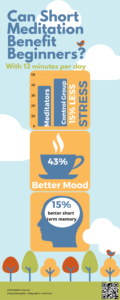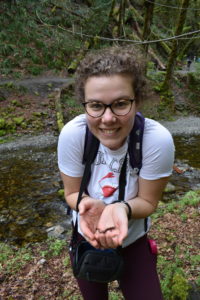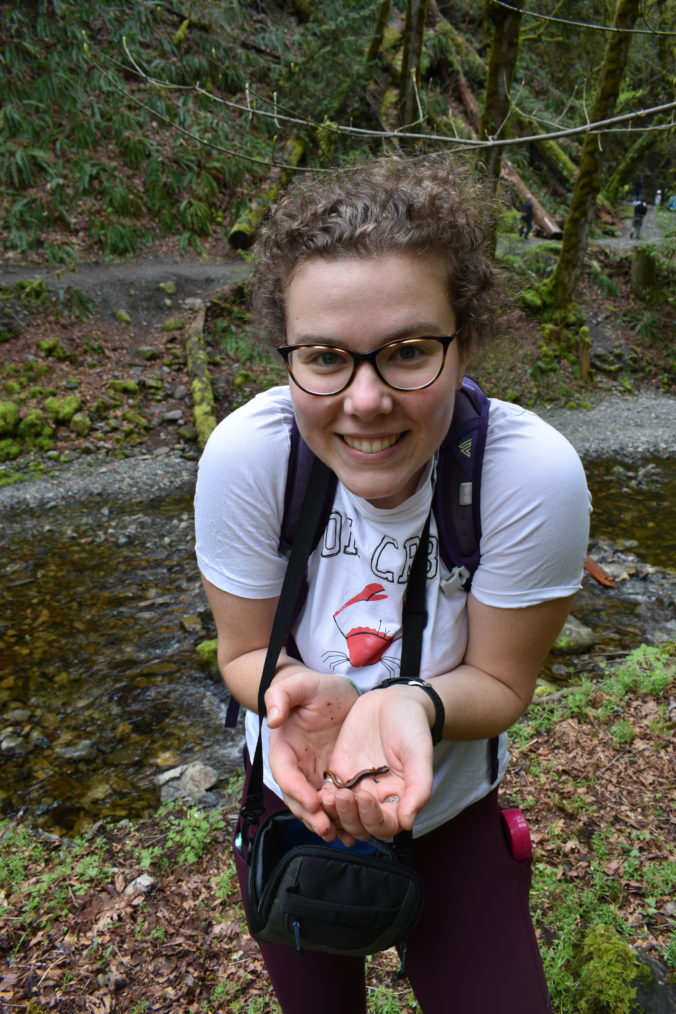As we near the end of the semester, I have two final competencies to explore on this EdTech blog, Image Editing and Assessment. I have been editing pictures throughout the semester when adding images to my pottery blog, but I was able to develop this competency further through a tutorial offered in our EDCI 352 class where we learned how to use Canva. Canva is a free application where you can design and edit all kinds of infographics, posters, reports, social media posts and others. I am not sure if this technically qualifies as image editing, but your end product after using Canva is often an image/picture tailored to your specific requirements. This was an excellent tool to learn to use. While in class I designed an infographic about meditation according to our tutorial specifications. In my previous job as a lifeguard and deck supervisor, I would often make infographics to post around the pool and fitness center to provide information about upcoming events like “Lifejacket Day” or “Drowning Awareness Week”. I would usually struggle along on Microsoft Word and try to make a colourful, engaging graphic but they were not what I envisioned. When I go back to work, I will definitely use Canva instead.
Can Short Meditation Benefit Beginners_

I will also be using Canva as a student tool in my future classroom as an assessment tool. I am currently planning a unit in my EDCI 767 How to Teach Science class about Lifestyles Differences. For the Nutrition section, a project could be to design a basic infographic that could be included in schools or doctor offices describing how to build a healthy diet, or clearing up misconceptions about carbohydrates as “unhealthy”. I could also use it in my Sleep section, where students could design an infographic about healthy sleep habits. They can demonstrate their knowledge in a practical and creative way!
We have discussed formative and summative assessment many times in our various courses with the benefits and short comings of both. Moving forward as a pre-service teacher, my goal is going to be to use a combination of these two assessment methods but stepping outside the box in terms of mode of assessment for both categories. I see myself using formative assessment as ongoing and casual assessment, where I hope all student will do well as I see it as more of a reflection on how well I am teaching the material on a day to day basis. I will use formative assessment as a day to day method of assessment. I will facilitate class discussion during my lessons and use a lot of small, quick, low stakes quizzes to constantly evaluate my students each day to learn how they are understanding the content I am teaching. This way, I know what to focus on for the next day’s class and where students need clarification on content. I will also be able to use formative assessment as final projects where students can develop and explore areas of content they find most interesting. I want these projects to further learning as compared to just showing me they saw all the content I taught them. Some of my favourite projects in school were when I got to pick the topic. In university in my biology classes, if I had a choice I would always focus on an organism I was passionate about. I wrote several papers and completed several projects on coral reefs, salamanders, the intertidal zone and insects as those are the things I feel most passionate about. By giving students the freedom to explore through inquiry in this formative assessment method I hope to get them psyched about school and learning!

I found a western redback salamander in Goldstream!
That being said, summative assessment is also important. This might just be my bias as much of my learning has been assessed through summative exams, but I find a lot of value in the ability to study and show a broad breadth of knowledge. As a highschool teacher, I am also preparing my students to be successful in their future careers and potentially at university. As of now, a lot of assessment at the university level is summative exams and assignments. I think it is crucial to give students practice in these methods so they can learn good study habits and testing skills for their future endeavours. If my students show up to their first Biology Midterm with no previous practice writing an exam, I would feel as though I had failed to teach them all the skills they needed. I am confident that I will be able to use a mix of both summative and formative assessment to adequately assess knowledge while still encouraging passion and further learning in my students!


Leave a Reply
You must be logged in to post a comment.